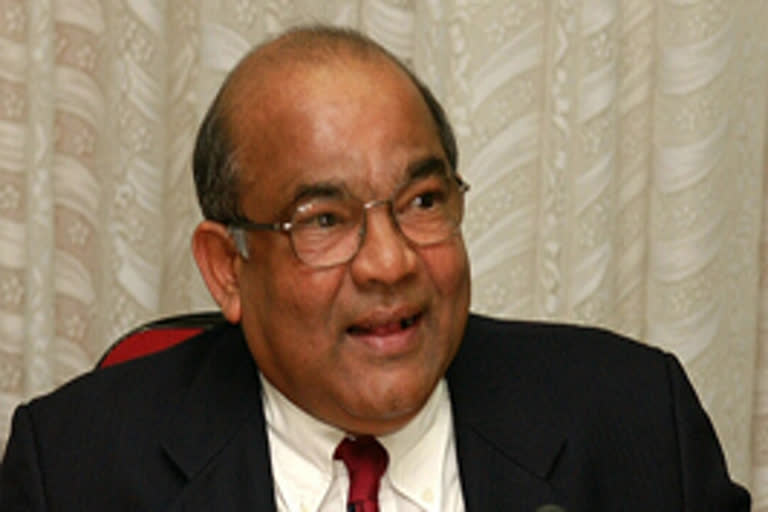New Delhi: Congress President Rahul Gandhi's minimum income support scheme for the poor can be implemented by curtailing other doles and allowing fiscal deficit to widen, former RBI Governor Y V Reddy said.
However, it would be difficult for state governments to implement a similar scheme as they largely depend on the Centre for finance and borrowing limit, he told PTI in an interview.
"I talk only in terms of central-state fiscal relations. The state governments have budget constraints that means state governments can't spend more money because borrowing requires permission of the Government of India. So, there is a limit (for state borrowing). If they implement some schemes like this (minimum income support scheme) that has to be within their own budget limit," he said.
However, he said, the Centre has some liberty to increase fiscal deficit and there is no such hard fiscal constraints.
"So, such programmes are implemented better if the Centre takes over. If the Centre is able to accommodate it within the budget, FRBM (Fiscal Responsibility And Budget Management Act) target, then you can't object...if Government of India says they will cut other expenditures based on their relative priorities, it can do it," he said.
Read more:Congress to give 3 year blanket pass to new ventures; abolish angel tax: Rahul Gandhi
In a big bang election promise, the Congress earlier this week announced that 20 per cent families belonging to the poorest category will be given Rs 72,000 each annually as minimum income if his party comes to power.
Asked if there can be sharing of the Centre and states for implementation of such scheme, Reddy said it could lead to complication. Reddy has co-authored with IES officer G R Reddy a book titled 'Indian Fiscal Federalism'.
According to this book, several developments in recent years point to the emergence of a new era in fiscal federalism, the contours are still unfolding.
The book highlighted some of the developments like setting up of the GST Council, reduction of flexibility for states in revenue generation along with an increased burden of expenditure and contentious Terms of Reference of Fifteenth Finance Commission.
"The GST Council is a shining example of cooperative fiscal federalism at its best," it said.
While the arrangement is yet to stand the test of time, the functioning so far gives rise to hope that it will be a pillar of strength on the indirect revenue side, just as the Finance Commission is on the revenue expenditure side of the centre-state fiscal relations, the book said.
former RBI Governor Y V Reddy has also said that the Niti Aayog suffers from a "wide mandate" and "diffused focus" and there is a need to reinvent the organisation in the context of fiscal federalism. There is a need to upgrade the Niti Aayog and empower it to perform functions of Centre and state coordination, he said.
"It is advisable to specify the tasks of Niti Aayog that are most relevant for Centre-State relations: identifying the sectors in state that should be eligible for grants from the Union; indicating criteria for inter-state distribution; helping design schemes with appropriate flexibility accorded to states regarding implementation; and identifying and providing areas specific grants," he said.
In brief, he said, wisdom lies in refocusing the scope of the Finance Commission to maintain the trust of all in the institution as the pillar of fiscal federalism.
